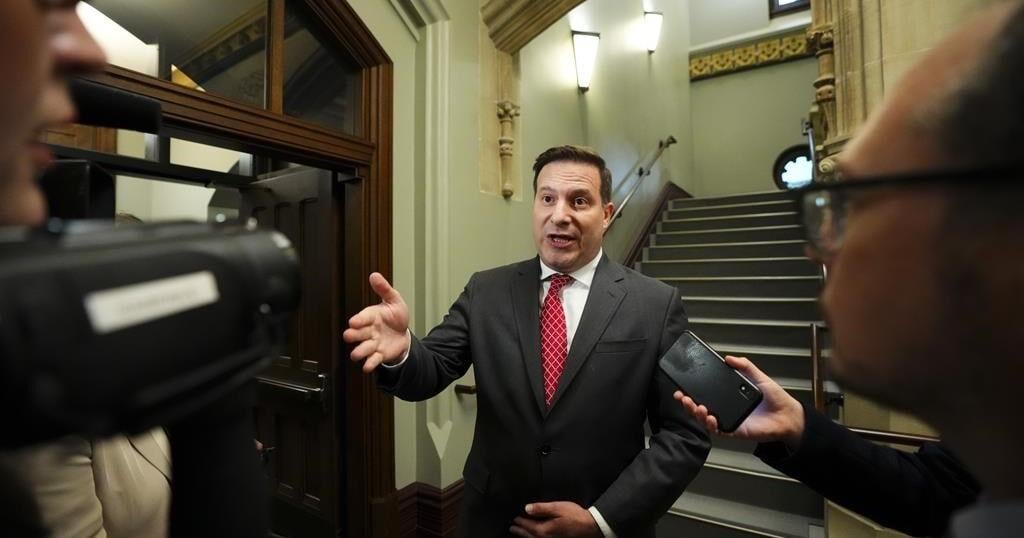OTTAWA – Former public safety minister Marco Mendicino is calling for the creation of “protective zones” around political constituency offices to shield members of Parliament and their staff from a rising tide of threatening behaviour.
Mendicino, a Toronto Liberal MP, said under the plan anyone who intimidated or otherwise harassed people within the buffer zone of perhaps 50 to 100 metres would be subject to harsher criminal penalties including jail time.
In an interview, Mendicino suggested spelling out such zones in regulations that will flow from the recently passed foreign interference bill, which contains new measures to protect essential infrastructure.
The former minister’s comments come as the attempted assassination of ex-U.S. president Donald Trump prompts renewed concern and discussion about the safety of Canadian politicians.
“We have to take parliamentary security more seriously,” Mendicino said. “We need as Canadians to open our eyes and recognize that political violence is not something that just occurs somewhere else, but that it is happening here in our own communities.”
People have constitutional rights to express a point of view and disagree with fellow Canadians including parliamentarians, he said.
“But it’s also true that we’re seeing more threats, more intimidation, more harassment, which can lead to harm both online and in the community.”
In the last few years, several MPs from different parties have had their constituency offices targeted, including graffiti spray-painted on the exterior and rocks thrown through windows.
Mendicino says he has received “a barrage of death threats” and that his family has also been targeted. A man recently spat on the MP in Ottawa as he walked to his office.
He and his constituency staff have become more prudent about booking appointments with members of the public, devoting more effort to vetting and screening.
Housing Minister Sean Fraser says he, too, has received death threats.
“My home has been outfitted with a greater degree of security than I feel is ordinary or that I’m personally even comfortable with,” he said in an interview. “But when security officials tell you they need to make certain decisions in your best interest when it comes to personal safety and security, you listen to them.”
Police have provided more protection to federal politicians from various parties in recent years.
Conservative Leader Pierre Poilievre said this week he worries about his family’s safety, and that he had sought protection in response to menacing behaviour.
Mendicino, who was minister responsible for the national police force from October 2021 to July last year, said he “always found that the RCMP were prepared to step up.”
“But it’s my view that they continue to need more resources, that local law enforcement needs more resources, and that we should leave all options on the table when it comes to creating new authorities for them” to help prevent harassment, he added.
RCMP commissioner Mike Duheme recently said he wanted the government to look at drafting a new law that would make it easier for police to pursue charges against people who threaten elected officials.
However, Justice Minister Arif Virani subsequently suggested existing Criminal Code provisions were sufficient.
Mendicino said the government needs to press social media companies to do more to ensure online spaces are free of invective and harassment.
He also acknowledges “politicians need to look in the mirror themselves.”
“And I don’t think it’s particularly helpful to point fingers and say one party is more guilty of of engaging in extreme rhetoric than the other. I think we’ve got a collective responsibility to raise the bar of political debate,” he said.
Overall, he worries “that the trends are all moving in the wrong direction.”
Unless the problem is taken seriously, it will spur more political violence and make it harder to attract and retain good people in politics, Mendicino added. “I’m going to continue to speak out on this issue to prevent that from happening.”
This report by The Canadian Press was first published July 18, 2024.
— With a file from Alessia Passafiume

























